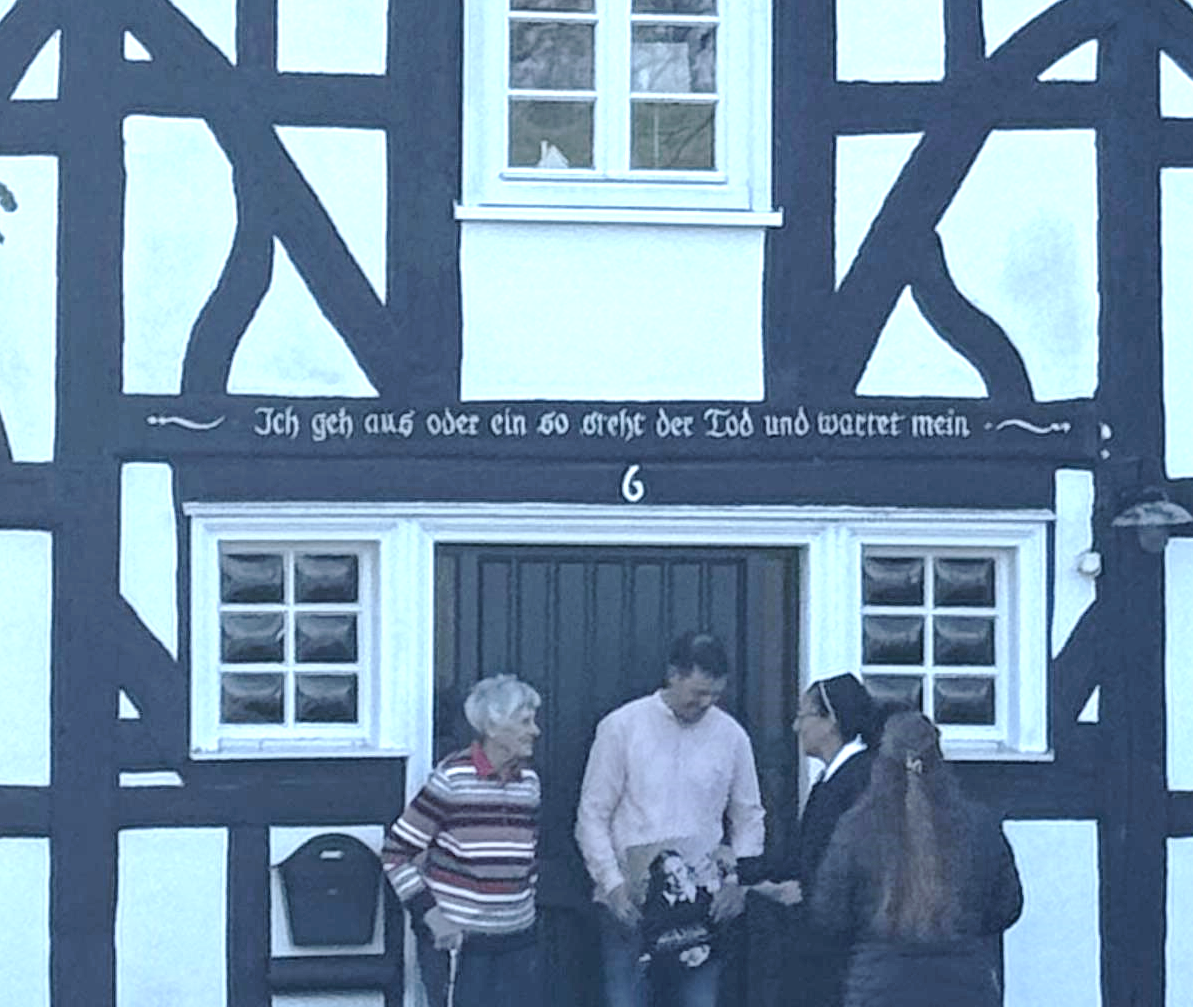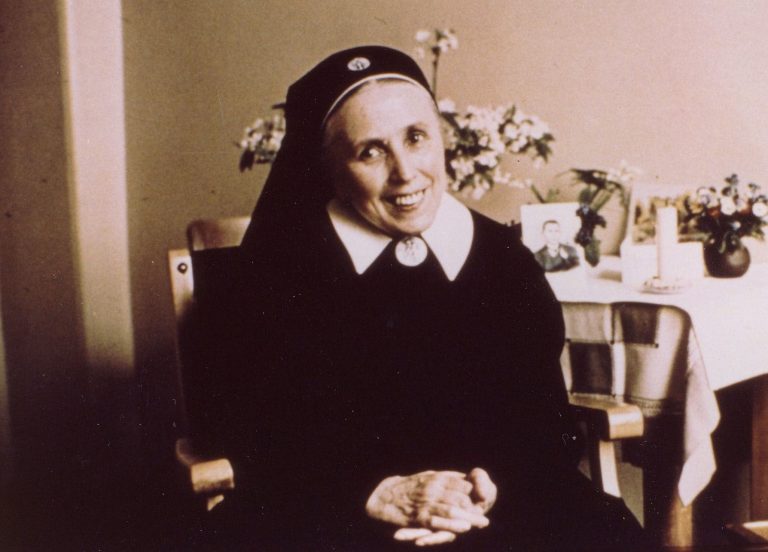On November 20, we celebrated the 70th anniversary of the death of Sister M. Emilie Engel, celebrating her “dies natalis,” her day of birth into heaven.
Born into heaven?
The Latin term “dies natalis” literally means “day of birth.” From a Christian perspective, this expression is often associated with birth into eternal life, since faith teaches that life does not end with death but reaches its fullness after death in the eternal encounter with God.
In the case of saints, blessed, and venerable servants of God, their dies natalis, their birth into heaven, means, at the same time, a new but very concrete way of continuing their mission, of continuing to give us the radiance of God’s light in an even more intense way than when they lived on earth.
Emilie Engel and her perception of eternal life
The thought of life after death is very present in Venerable Emilie Engel. From an early age, she became familiar with the reality of eternity: above the entrance door of her parents’ house—built in an old German half-timbered style—there is a phrase that, for many generations, has borne witness to the deep faith of the Engel family: “As I go out and come in, death is waiting for me.” This idea probably filled little Emilie’s childhood imagination, strengthening her faith in eternal life and, perhaps, instilling in her a particular fear of God’s judgment after death.

However, in her mature years, Emilie Engel’s perception of death and eternity is entirely different from that of her youth. Her covenant of love with the MTA and her life in the Sisters of Mary’s community change her relationship with God. Her fear of divine justice gradually gives way to absolute trust in the gratuitousness of her Father’s love.
From fear to trust
Sister Emilie’s inner journey, her growth toward a radical and liberating trust, is visible in many different aspects of her life. With regard to death, in 1935, we already see a change that testifies to her transition from fear to trust. In a prayer of surrender, in the midst of her first symptoms of tuberculosis, which would mark her for life, she wrote: “I want to live and die in heroic trust, if You desire such a degree of trust from your daughter.” On November 20, 1955, God definitively accepted that surrender.
In March 1945, in the chaos at the end of World War II, Emilie prepared herself inwardly for the possibility of death. In her writings, there is no longer any trace of her former fear of divine punishment or death. The possibility of sudden death no longer disturbs her; on the contrary, she rejoices at the thought of continuing to work from heaven “in Schoenstatt’s great work, for the glorification of God.” She asks Mary to take her by the hand so that, together with her in heaven, she can “praise God’s mercy and goodness for all eternity.” She continues writing: “I die serene in the spirit of filial obedience.” In Emilie’s characteristic way of expressing herself, “filial obedience” sums up the trust from which her calmness and security spring. The ripe ear of wheat that bends to give its seed—a symbol that Emilie likes very much—expresses the simple and trusting attitude with which she bows to God’s desire and will, pronouncing a joyful “Ita Pater,” yes, Father.

Ten years later, on October 12, 1955, with her death clearly approaching, Sr. M. Emilie received the sacrament of the anointing of the sick administered by her brother, Fr. Anton Engel. She received it fully conscious, knowing that it was her final preparation to bow down definitively, like a ripe ear of corn, and celebrate her dies natalis, her birth into heaven. During those days, she wrote a spiritual testament that concludes with words that speak of the process of growth in trust that the covenant of love allowed her to undergo: “Praise be to divine Providence in my life. Glorified be the mercy of God and the Mother of God…! I want to praise the merciful love of the Father and the Mother for all eternity, to be a sacrifice of praise to their mercy.”
Her mission for today
On November 20, we remember the 70th anniversary of Sister Emilie’s dies natalis. A significant moment that not only marks the day of her death but, above all, marks the beginning of her mission from heaven. Sr. M. Emilie’s simple trust in God shone in her eyes until the moment of her death. And it continues to open hearts to God and His wise plans.
The anniversary of the death of Venerable Emilie Engel reminds us that her mission continues from heaven: Sr. M. Emilie lights our way in the covenant of love. She helps us grow from fear to trust by helping us believe that God is Father and that he guides our lives with infinite love. Emilie helps us mature in the covenant of love with Mary, to be children of the Father, in Christ, and like Christ. What was possible in Emilie’s life is also possible in our lives, in the covenant of love.
Sr. M. Elizabet Parodi
Postulator in the Cause for Beatification of Venerable Emilie Engel


